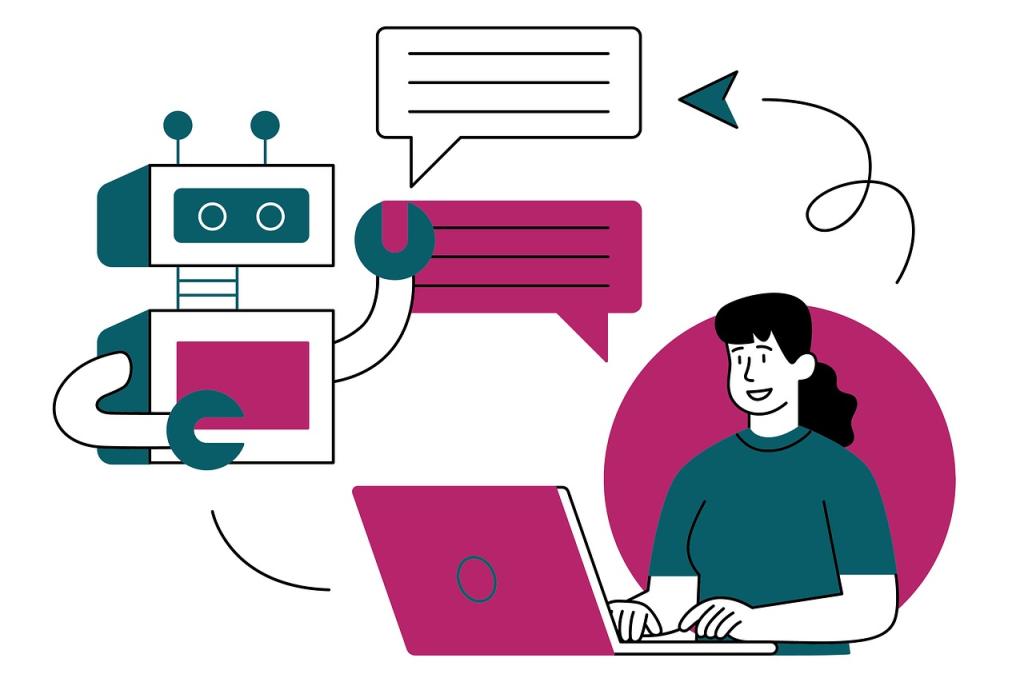
In the self-storage industry, dealing with customers well is really important. AI-powered chatbots are now coming into play to make these interactions better. These chatbots are computer programs that use artificial intelligence to chat with customers. They can understand what customers ask and give useful answers, just like a human would do, but they’re available all the time and can handle lots of inquiries at once.
I. Benefits of AI-Powered Chatbots in the Self-Storage Industry
1. 24/7 Availability
- Customers might have questions about self-storage at any time, like in the middle of the night when they suddenly remember something they want to know. AI-powered chatbots are always there to respond. Whether it’s early morning or on weekends, customers don’t have to wait for office hours to get the information they need.
- For example, if a customer is moving stuff late and wants to check if they can still access their storage unit, the chatbot can tell them right away.
2. Quick Responses
- Chatbots can answer questions very fast. As soon as a customer types in their query, the chatbot analyzes it and gives an answer in just a few seconds. This saves customers’ time compared to waiting on hold for a human agent to answer the phone.
- Say a customer asks about the size options of storage units. The chatbot can list them out promptly without any delay.
3. Cost Savings
- Hiring more human customer service agents can be costly for self-storage businesses. AI-powered chatbots can handle many of the common questions, reducing the need for as many human staff to deal with basic inquiries. This way, the business can save money on salaries and training costs.
- For instance, instead of having several agents just answering questions like “What are your opening hours?”, the chatbot can take care of these.
4. Consistent Information
- Every time a customer asks the same question, the chatbot gives the exact same accurate answer. There’s no variation like there might be with different human agents who could explain things slightly differently. This builds trust with the customers as they know they’ll always get reliable information.
- If multiple customers ask about the security measures in the storage facility, the chatbot will provide the consistent details each time.
5. Handling Multiple Inquiries
- During busy times, like when many people are looking for storage solutions at the start of a moving season, chatbots can handle lots of questions from different customers all at once. They don’t get overwhelmed like humans might and can keep providing good service to everyone.
- For example, dozens of customers could be asking about prices, availability, and rental terms, and the chatbot can manage all those conversations smoothly.
II. How do AI-Powered Chatbots Work?
1. Natural Language Processing
- Chatbots use natural language processing (NLP) technology. They’ve been trained to understand different ways people might phrase a question. So whether a customer asks formally or casually, the chatbot can figure out what they mean.
- For instance, a customer might say “What’s the smallest unit you got?” or “Can you tell me about your smallest storage space?”, and the chatbot will recognize both as the same basic question.

2. Learning from Data
- They learn from lots of past conversations and information provided by the self-storage business. Every time they answer a question and get feedback on whether it was right or helpful, they can improve. They also get updated with new details about the business, like new storage features or price changes.
- If the business adds a new type of climate-controlled unit, the chatbot can be taught about it and then tell customers when asked.
3. Generating Responses
- Based on what they understand from the customer’s question and the knowledge they have, chatbots generate appropriate responses. They can even suggest related information or options that might be useful to the customer.
- Like if a customer asks about storing furniture, the chatbot can not only tell them about suitable unit sizes but also mention any special packing materials available at the facility.
III. AI-Powered Chatbot Capabilities Integration with Self-Storage
1. Unit Recommendation
- Chatbots can ask customers about what they plan to store, like whether it’s household items, business documents, or vehicles. Then, based on that information, recommend the right size and type of storage unit. This helps customers make better decisions and also shows the business’s expertise.
- For example, if a customer says they’re storing a motorcycle, the chatbot can suggest a specific unit with the right height and space for it.
2. Providing Assistance
- They can guide customers through the process of booking a storage unit. Explain the steps, show available units on a certain date, and help with filling out the necessary forms online. This makes it easier and more convenient for customers to secure their storage space.
- If a customer wants to book a unit for next month, the chatbot can walk them through choosing the unit, entering their details, and confirming the reservation.
3. Sharing Local Information
- Since self-storage facilities are often in specific locations, chatbots can share useful local information. Like telling customers about nearby moving companies, places to buy packing supplies, or the best times to access the storage facility based on local traffic patterns.
- For instance, if a customer is new to the area, the chatbot can recommend a good hardware store nearby where they can get boxes and tape.
4. Answering FAQs
- Chatbots can have a built-in list of frequently asked questions about the self-storage business. Things like payment methods, security features, and access hours. They can quickly pull up the answers when customers ask these common queries, saving everyone’s time.
- If a customer asks about how often they can access their unit, the chatbot can simply refer to the FAQ answer and tell them.
5. Handling Complaints
- When customers have issues or complaints, chatbots can listen patiently (well, in a digital way!) and try to solve the problem or direct the customer to the right person who can help. They can start by gathering details about the complaint and then offer some initial solutions if possible.
- For example, if a customer says they had trouble accessing their unit because of a broken gate, the chatbot can apologize, ask for more specific details like the time it happened, and then tell them that maintenance will be notified.

AI-powered chatbots have a lot to offer the self-storage industry. By taking advantage of their benefits and integrating useful capabilities, self-storage businesses can improve customer interactions, make things easier for their customers, and run more smoothly overall.



